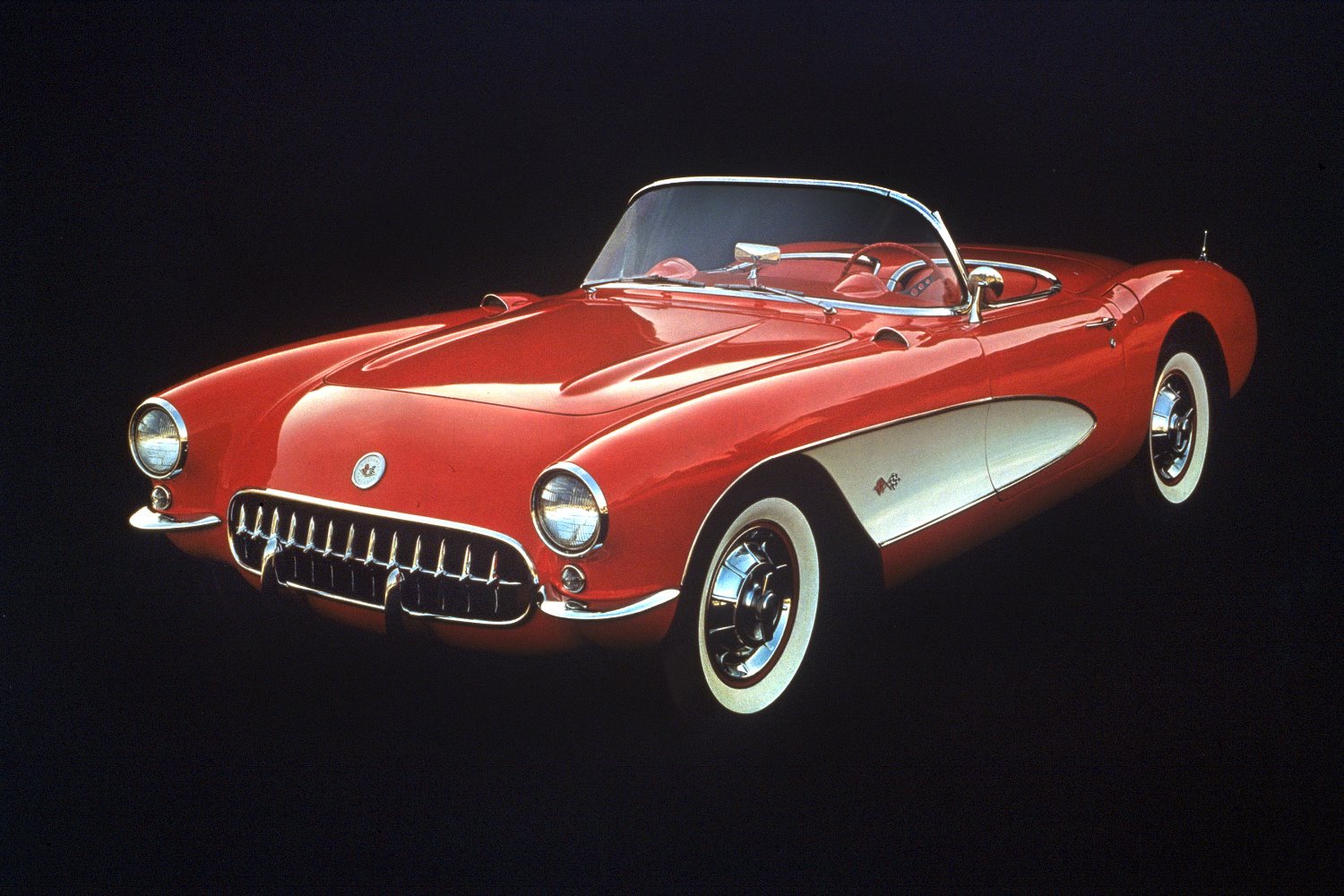Chevrolet Corvette Roars Into Its 60th Year
 |
| Original 1953 Corvette |
On June 30, 1953, the first of a new kind of Chevrolet – indeed, a new kind of American car – rolled off an assembly line in Flint, Mich.
The car had only two seats. There were no roll-up windows, or exterior door handles, for that matter. Its body wasn’t stamped from steel but, rather, molded from reinforced fiberglass.
While the postwar Baby Boom was in full swing, this was definitely not a family car. This was a very personal vehicle, one that promised a driver and a passenger all of the thrills of the open road.
Skeptics gave the car little chance of lasting beyond an initial run of a few dozen units. However, 60 years later the Chevrolet Corvette survives – and thrives – as an American automotive and cultural icon.
“Through the years, Corvette certainly offered state-of-the-art features, designs, technologies and performance," said Tadge Juechter, vehicle chief engineer for Corvette. “However, I think what has made the Corvette such an enduring concept is the exciting experience of driving one.
“No matter what your station in life, when you’re behind the wheel of a Corvette, you’re an Olympic athlete – able to go faster, stop quicker, and turn better than everyone else," Juechter continued. “Very few cars can match that experience. And no other car has delivered that experience as well, or to more people, than the Corvette."
Barely five months before Tony Kleiber, a Flint plant body assembler, drove that first Chevrolet Corvette off the line and into automotive history, the icon in the making was little more than a designer’s dream.
Corvette was first created under the code-name XP-122 to provide Americans with a glimpse of a European-style sports car designed for this side of the Atlantic. It was one of several concept cars unveiled in January, 1953 at the GM Motorama show in the ballroom of the Waldorf Astoria Hotel in New York City.
With a world war not far behind them, people wanting a glimpse of the automotive future lined up around the block to view the new concept vehicles. At the Waldorf Astoria – and at every other Motorama stop across the country — Chevrolet’s sporty little roadster ignited many Americans’ imaginations.
In fact, the Corvette was so popular that Chevrolet executives decided to thrust the two-seat roadster into production, albeit on a very limited basis.
Initial plans called for about 150 Corvettes, primarily to help draw potential customers into Chevrolet dealerships scattered across the U.S.’s then-48 states. Overwhelming demand doubled the first-year production to 300 units. The following year, the Corvette moved to a GM assembly facility in St. Louis, Mo., where 3,640 Corvettes were built for the 1954 model year.
Those first Corvettes sparked Americans’ 60-year love affair with the Corvette. Since 1953, more than 1.5 million Corvettes have been built. Those cars have become synonymous with American performance – from cruising down Americana on Route 66 to taking the checkered flag at the world’s most prestigious road race, the 24 Hours of Le Mans.
During the coming months, Chevrolet will kick some tires, open the hood, and climb behind the wheel to highlight 60 years of Corvette design, performance and technology milestones. We hope you enjoy the ride.
